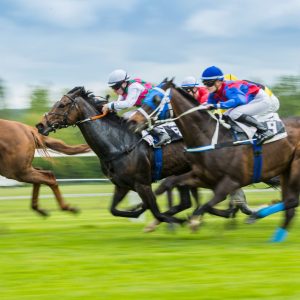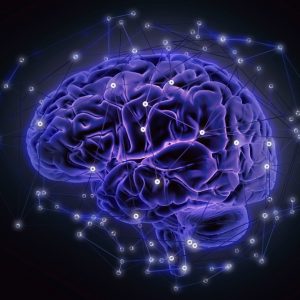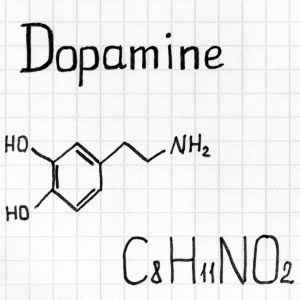Why is gambling so addictive?! It’s a question many people ask, since gambling involves a behaviour rather than the physical consumption of a substance such as in alcohol or drug addiction. First, let’s take a look at a client case study to give us a picture of what gambling addiction can entail.
Why is gambling so addictive and why do people get addicted to gambling? Causes, signs, prevention, support and more.
Daniel* was eighteen years old the first time he attended a live horse race. He remembers spending a carefree summer day with a group of friends, enjoying the race day atmosphere and soaking up the rare British sun. After sharing a few rounds of drinks, like thousands of other Brits every weekend, he placed a bet on the horses. Looking back on that day, he does not recall caring about whether he made a loss or a win. It was just a spontaneous bit of fun, quickly forgotten.
That was his first ever gamble. Unfortunately, it would not be his last.
The dark side of gambling
A decade later, Daniel and his partner celebrated the birth of their first child, a little girl. Friends and family were joyful, congratulating him on his new daughter. But hidden beneath the happy exterior of the new dad was a dark shadow.
Unbeknownst to his closest friends – and even to his partner – Daniel was visiting multiple betting shops every day. At each, he took what he refers to as “massive amounts of money” from his own and shared bank accounts, even using his new born daughter’s savings account. He used the excuse of needing “me time” to get out of the house and place ever more bets on horseracing and other sports. The habit had grown, from the occasional bet with friends, to an out of control obsession. Other forms of gambling had crept in and he had become addicted to roulette, playing with more and more money, desperately trying to chase his losses.
Ultimately, he maxed out every credit card and emptied every account, creating a spiral of debt and financial devastation. His partner eventually confronted him and he almost lost his family as well as his life’s savings. Shame, guilt and sorrow were daily experiences.
Desperate to gamble
Despite this, Daniel was still desperate to gamble. “I realised nearly every day that I had a problem… but by the time I got away from the [betting] shop feeling sorry for myself, I was already thinking of ways I could go back, what excuses I could make up.”
It took him a long time to admit he had a problem, and even longer to seek help. Eventually he came across Ara and spoke to a counsellor, slowly repairing the damage he’d made to his own and other’s lives. His life is now very different. “My life has changed dramatically. I’m still in debt, and I find it hard when I get frustrated… But, somehow, I have coped with everything. Most of all, I still have my family, and I’ve watched my children grow up.”
Daniel was destroying his life with the effects of his gambling, and yet for many years he wouldn’t – or couldn’t – stop. Why was this? What is it about gambling that is so addictive?
To answer this, we must first look at what addiction is.
The NHS defines it as follows: “Addiction is defined as not having control over doing, taking or using something to the point where it could be harmful to you.”
For many years, psychiatrists did not characterise gambling as an addiction in the same way they did for substance misuse or alcoholism. They labelled it as a compulsion, ultimately treating it in an entirely different way than substance addiction.
The boundaries are admittedly murky between physical and psychological addiction and scientists are still working on theories of how addiction works. However, we now know that behavioural addictions (other examples include shopping, gaming and sex addictions) such as gambling share many of the same mechanisms as substance addiction. They rewire the brain in similar ways. Read on to find out the latest understanding about the causes of addiction from the scientific field.
What causes a person to become addicted to gambling? Understanding the science.
As mentioned above in Daniel’s story, thousands of people in the UK gamble without the activity ever becoming a problem. In fact, 44% of British people gamble over an average four-week period. On the other hand, a Gambling Commission study estimated that 340,000 of these people are at-risk, with a minority suffering from life-ruining addiction. There are various factors, both genetic and environmental, that are proven to make people more likely to develop an addiction. These include:
- Adverse childhood experiences (ACEs)
- Experimenting with alcohol, gambling or drugs at a young age
- Childhood neglect or an unstable home
- Living in a community affected by poverty
- Poor academic achievement
- Experiencing mental health problems
The three main influences could be summarised as genetics, environment and your social support systems.
There is a major link between poverty, adverse circumstances and your likelihood of becoming addicted, whether that is to gambling or something else. With that, bear in mind that people from any walk of life can become addicted; it crosses every section of society from the very poor to the richest billionaires.
Next we will look at how the reward pathways in the brain are affected; a significant reason why gambling is so addictive.
How does the brain get addicted to gambling?
“You get addicted to the excitement of gambling. The rush you feel when you get handed a 21 in blackjack or get a full house on the flop.”
– Recovering gambler, anonymous
The prevailing theory for addiction to gambling centres around dopamine release in the brain, much the same as in other addictions. Dopamine is the feel-good neurotransmitter that makes us feel happy and excited. When we do something we enjoy, dopamine floods our brain’s receptors, making us more likely to seek out the same behaviour again.
However, dopamine release does not just occur when you win at gambling. Your brain also releases dopamine when you lose. This pushes the incentive to gamble even higher; despite the fact you may be losing, your brain is chasing those dopamine highs that it knows have come before. The intermittent and unpredictable nature of winning, losing, winning again (and the intermittent dopamine release) is what makes gambling so incredibly addictive.
“The rush of winning, the anger of losing, the “can’t get enough” feelings all make gambling addictions an incredibly powerful urge.”
– Recovering gambler, anonymous
In addition, the more the brain is awash with dopamine, the more accustomed it becomes to the neurotransmitter’s effects. It therefore takes greater and greater risks and more time spent gambling to achieve the same “high” in the brain. This tolerance to dopamine can also change the gambler’s moods and cause mental health problems. Much like with drug or alcohol addicts, the gambler may feel withdrawal symptoms if they are unable to gamble. Their mood may lower and the ability to concentrate disappears.
“And then you start needing a bigger win in order to get that same rush and it feeds upon itself.”
– Recovering gambler, anonymous
What type of gambling is the most addictive?
The type of gambling considered the most addictive has traditionally been slot machines. However, with the rise of internet gambling sites, online gaming has become one of the most addictive contendors. Internet gambling is easier to hide from friends and family as you don’t even need to leave the home in order to gamble.
Slot machines have earned the nickname of the “crack cocaine” of gambling. They are played very fast, with some performing up to 500 spins an hour. This can lead to huge losses in a very short space of time. For some people, this becomes an endless cycle of chasing the losses. They end up playing the machines for hours at a time, with complete disregard for the world outside the slot machine.
This trance-like state is “dark flow”. You may have heard of artists getting into a “flow” –the idea is usually associated positively with creative activities, where people get so engrossed in the activity that they no longer notice what’s going on around them. However, dark flow is a risk that players with gambling related pathology are far more likely to encounter. They may emerge from their dark flow state having lost all of their money, and then face intense negative emotions such as guilt and panic.
Thankfully, gambling addiction is treatable.
How is gambling addiction treated?
So far, we have talked about why gambling is so addictive, what goes on in the brain when you gamble, and who is most at-risk for becoming addicted. Now let’s talk about the solutions!
If you have experienced negative consequences from your gambling, you are far from alone. Every week we hear from many people just like yourself, and we have helped thousands of people to recover from their problems.
The hardest part can be admitting that you have a problem, but the good news is that with help and support, you can recover.
These are some of the ways gambling can be treated:
Cognitive behavioural therapy
Cognitive behaviour therapy (CBT) is one of the most common gambling addiction treatments. Evidence shows that it can teach you the skills to allow you to change your behaviour and beliefs. Other types of therapy and family therapy may also be helpful.
Residential rehab
It is uncommon to go to a residential rehab facility for gambling addiction, but a few such places do exist. These are designed for people to retreat from society for a while in order to tackle their addiction with 24 hour support from specialists. The downsides are that rehab is very expensive and not practical for most people who have jobs and families to look after.
Self-exclusion and blocking gambling sites
Blocking yourself from online gambling sites is a great step to begin your recovery journey. We have a detailed guide on how to block yourself from online gambling. Also take a look at our page on self-exclusion which details how to ban yourself from other types of gambling. Whilst self-exclusion is a positive way to begin recovery, we do recommend that you also seek support from other sources, such as those listed below.
Free support and counselling from Ara
Ara is a registered charity providing support for people with addiction, homelessness and mental health problems for the past 35 years. We provide free gambling help and support across the whole of Wales and the South West of England. This can include anything from a quick chat with our advisors, to many weeks of 1:1 counselling in-person or over the phone. Everyone is different in what level of support they need, and we understand that.
Anyone worried about their own or a loved one’s gambling is welcome to give us a call on 0330 1340 286.
You can also self-refer via our online form. All of our services are free and confidential.
Peer support and GA
A final option to consider is peer support groups, such as Gamblers Anonymous or SMART meetings. You can meet other people struggling with similar issues to yourself, and encourage each other to recover.
*Names changed to protect the identity of our clients.
Get in touch with us for free gambling help today
Here are the ways you can get in touch with Ara to begin your recovery journey. We look forward to hearing from you!
Call us: 0330 1340 286
Fill in our online support form
Six To Ten
Fill in the form below and we’ll get back to you within the next working day.





